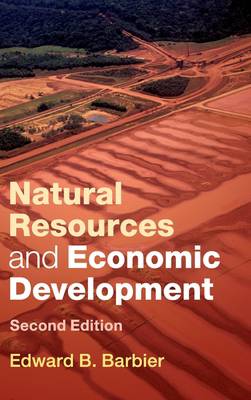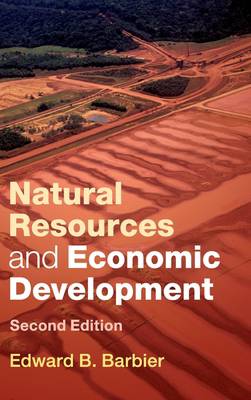
- Afhalen na 1 uur in een winkel met voorraad
- Gratis thuislevering in België vanaf € 30
- Ruim aanbod met 7 miljoen producten
- Afhalen na 1 uur in een winkel met voorraad
- Gratis thuislevering in België vanaf € 30
- Ruim aanbod met 7 miljoen producten
Zoeken
€ 236,45
+ 472 punten
Uitvoering
Omschrijving
Why is natural resource exploitation not yielding greater benefits for the poor economies? In this second edition of his landmark book, Barbier explores this paradox in three parts. Part I gives a historical review of resource use and development, examining current theories that explain the under-performance of today's resource-abundant economies, and proposing a hypothesis of frontier expansion as an alternative explanation. Part II develops models to analyse the key economic factors underlying land expansion and water use in developing countries. Part III explores further the structural pattern of resource dependency, rural poverty and resource degradation within developing countries, and through illustrative country case studies, proposes policy and institutional reforms necessary for successful resource-based development. First published in 2005, each chapter in this new edition has been thoroughly revised and updated, with new material, tables, figures and supporting empirical evidence. It will appeal to graduate students and scholars researching environmental and developmental economics.
Specificaties
Betrokkenen
- Auteur(s):
- Uitgeverij:
Inhoud
- Aantal bladzijden:
- 458
- Taal:
- Engels
Eigenschappen
- Productcode (EAN):
- 9781107179264
- Verschijningsdatum:
- 19/09/2019
- Uitvoering:
- Hardcover
- Formaat:
- Genaaid
- Afmetingen:
- 165 mm x 238 mm
- Gewicht:
- 725 g

Alleen bij Standaard Boekhandel
+ 472 punten op je klantenkaart van Standaard Boekhandel
Beoordelingen
We publiceren alleen reviews die voldoen aan de voorwaarden voor reviews. Bekijk onze voorwaarden voor reviews.








